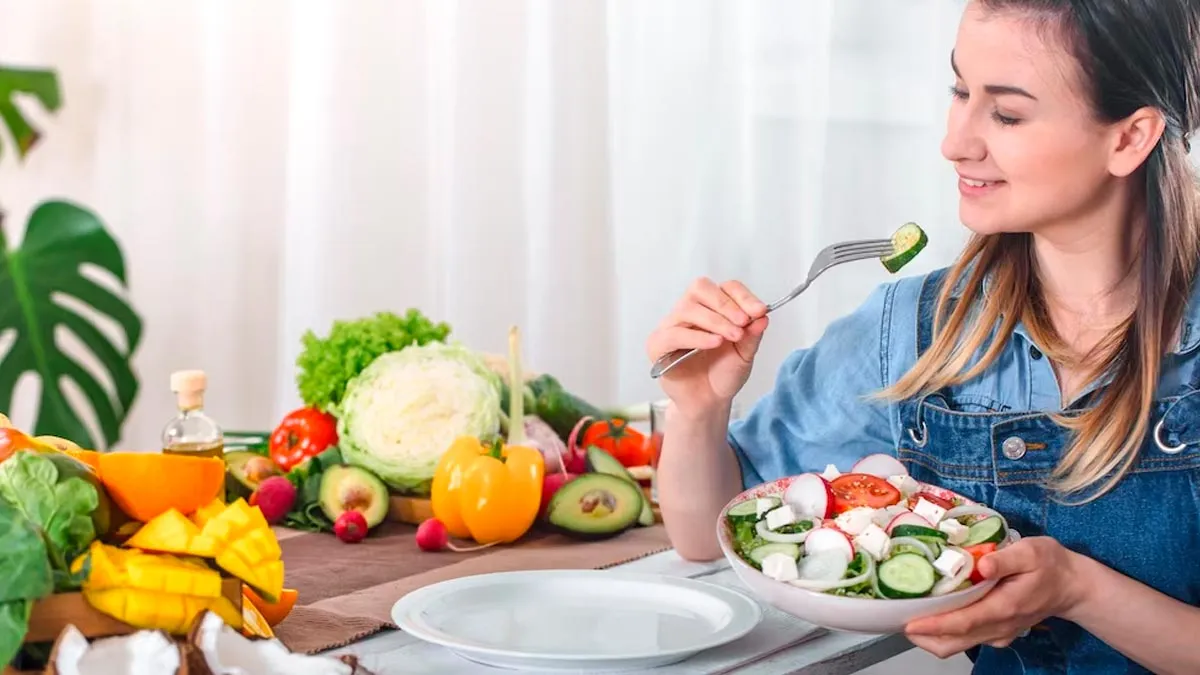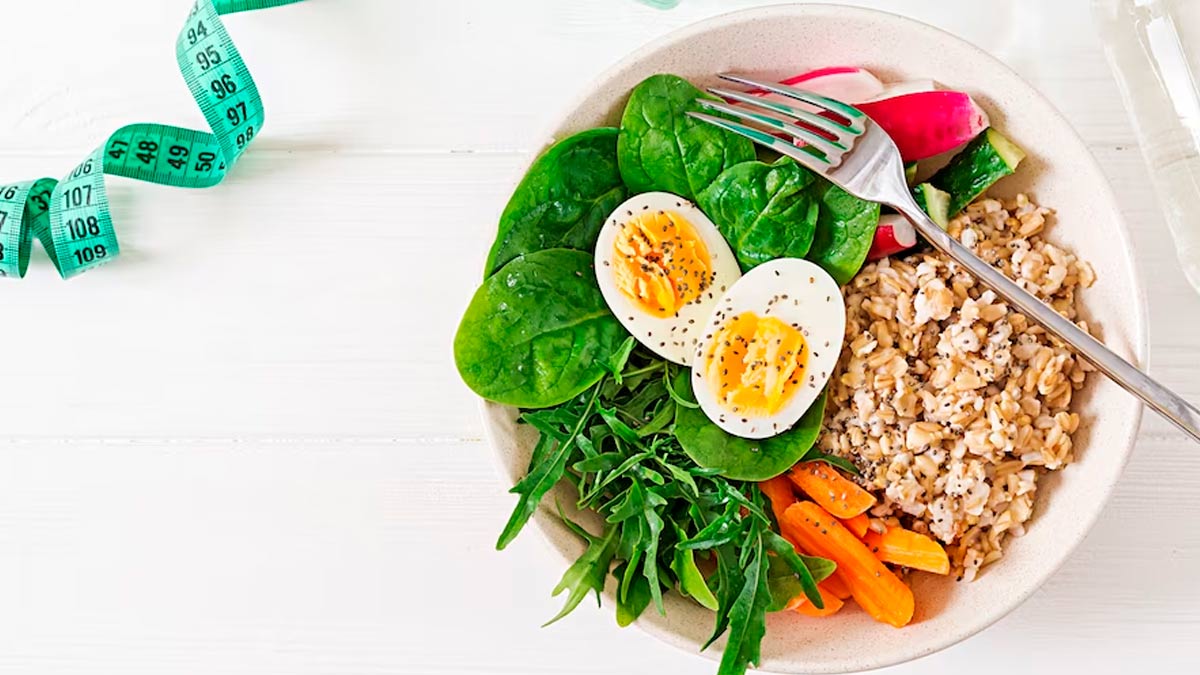
The patter of raindrops, the damp smell, and the assurance of relief from the swelter is what the monsoon rains are for, inescapably magical. But under its dreamy facade, the rainy season also comes with a higher threat of various illnesses. From an upset stomach to a fever, the higher humidity and moisture create an ideal breeding ground for microbes, making us prone to infections.
Table of Content:-
Though staying hydrated and keeping yourself clean are key, what you set on your plate is just as important in fending off monsoon ailments. Some foods, innocuous-looking, can turn into bacteria breeding grounds or strain your stomach, making you weak.
Foods To Absolutely Avoid In Monsoon Season
In an exclusive interaction with the editorial teamof Onlymyhealth, our expert, Pooja Singh, Dietician at ShardaCare, Health City - Nodia, therefore,explained that as you welcome the monsoons, be sure to avoid these no-nos at all costs:
1. Street Food (Fried and Raw in Particular)
This is perhaps the most significant red flag during the monsoon. That tempting plate of pani puri, aloo tikki, or roadside pakoras might seem irresistible, but the risks far outweigh the momentary pleasure.
Why avoid: Street food stalls usually function in a dirty environment. Water meant for pani puri may be unclean, ingredients may not be fresh, and the frying oil is reused several times and is unhealthy and a harbor for bacteria. Raw cut vegetable and fruits provided on the street are similarly highly prone to dust, flies, and unhygienic hand contact contamination.
The risk: Typhoid, cholera, dysentery, gastroenteritis, and other serious food poisoning episodes.

2. Leafy Green Vegetables (Unless Extremely Well-Cleaned and Cooked)
While normally a nutritional powerhouse, leafy vegetables such as spinach, cabbage, fenugreek, and cauliflower need extra care during the monsoons.
Why avoid: The moist and dirty environment allows worms, larvae, and soil to stick to these vegetables. Even washing them well may not clean all the contaminants.
The risk: Parasitic infections, stomach infections, and digestive problems.
Healthy alternative: If you have to eat them, choose organic ones, wash them carefully under running water, blanch them first before cooking, and cook them well. Root vegetables such as carrots, radishes, and potatoes are safer in general.
3. Seafood (Particularly Prawns and Crabs)
The monsoon season is usually the breeding season for most fish and seafood. This implies that they are usually not fresh.
Why avoid: Water bodies are usually filled with sewage and run-off during the monsoons, which will increase the likelihood of fish and other seafood coming into contact with toxins and bacteria. This can cause food poisoning if ingested. Secondly, the likelihood of spoilage is greater because of humidity.
The risk: Food poisoning, diarrhea, and other gastrointestinal diseases.
Healthy alternative: If you miss non-vegetarian food, have fresh chicken or mutton from trusted sources, well-cooked at home.
4. Pre-Cut Fruits and Ready-To-Eat Salads
The ease of pre-cut fruits and salads brought by vendors or even available in supermarkets can be a health risk in the rainy season.
Why avoid: Once cut, fruits and vegetables are exposed to the environment, making them highly susceptible to bacterial contamination. Flies, dust, and humidity can quickly turn them into a breeding ground for microbes.
The risk: Diarrhea, food poisoning, and stomach infections.
Healthy alternative: Always buy whole fruits and vegetables and cut them yourself just before consumption. Peel fruits like cucumber and apples if possible.

5. Deep-Fried Foods (Even Home-Cooked)
Although there is a strong temptation to snack on hot bhajiyas or samosas on a rainy day, fried foods harm your digestive system.
Why avoid: Monsoon humidity slows down our digestion and metabolism. Fried food is heavy to digest and causes bloating, acidity, and indigestion.
Risk: Acidity, indigestion, bloating, and other digestive issues.
Healthy alternative: Have healthful substitutes such as roasted chana, popcorn, or steamed corn.
6. Raw Sprouts
Raw sprouts are usually touted as a superfood, but monsoons make them a troublemaker.
Why avoid: The warm, damp conditions ideal for sprouting are also ideal for the proliferation of bacteria such as Salmonella and E. coli. Eating them raw heightens the risk of infection.
The risk: Food poisoning in the form of Salmonella and E. coli infections.
Healthy alternative: If you need to incorporate sprouts in your diet, steam them well before eating.
7. Carbonated Beverages
Although they may provide a fleeting coolness, carbonated beverages are not the optimal option during the monsoons.
Why avoid: They slow down the functioning of digestive enzymes and cause bloating and gas. Moreover, they provide zero nutrition and are loaded with sugar.
The risk: Gas, bloating, and gastric distress.
Healthy alternative: Limit yourself to warm drinks such as herbal teas, ginger tea, or clear soups. And plain boiled and filtered water is your saviour.
Overall Tips for a Healthy Monsoon
- Drink lots of boiled and filtered water: This is the most important thing to avoid waterborne illnesses.
- Wash your hands regularly: Particularly before meals and after visiting the bathroom.
- Cook food properly: Cook all food to the right temperature to destroy any harmful bacteria.
- Consume fresh, home-cooked food: This allows you full control over ingredients and hygiene.
- Enhance immunity: Add immune-boosting foods such as ginger, garlic, turmeric, and citrus fruits into your diet.
- Eat out as little as possible: When you do, go to reputable places with clean hygiene standards.
Bottomline
By taking care of your food habits and following these basic precautions, you can really enjoy the charm of the monsoon season without falling victim to its attendant ailments. Stay healthy, stay safe, and enjoy the rains in moderation!
Also watch this video
How we keep this article up to date:
We work with experts and keep a close eye on the latest in health and wellness. Whenever there is a new research or helpful information, we update our articles with accurate and useful advice.
Current Version